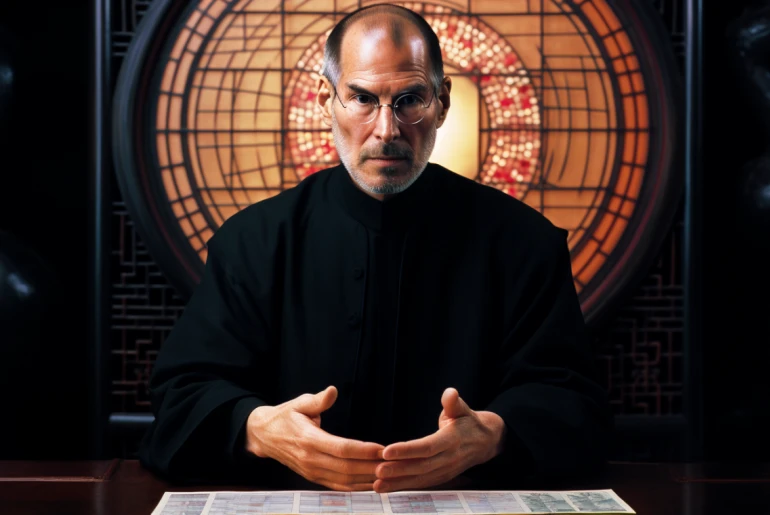In the high-octane world of Silicon Valley, it's easy to overlook the unconventional methods that have shaped its luminaries. One standout example is Steve Jobs, the co-founder of Apple Inc. His leadership and innovations transformed not just the tech industry but also how we interact with technology in our daily lives. Yet, few realize that Jobs' groundbreaking approach was deeply influenced by Eastern spirituality, notably the I Ching, Buddhism, and meditation practices.

Jobs' Early Spiritual Quest
Steve Jobs was a seeker from a young age. Long before he ever set foot in a garage to build Apple's first computer, he was exploring various spiritual paths. At Reed College, Jobs stumbled upon the book "Be Here Now" by Ram Dass, which catalyzed his interest in Eastern spirituality. In the early '70s, he even traveled to India in search of spiritual enlightenment. Though he returned disillusioned, the impact of Eastern philosophies never left him.
The I Ching and the Apple Logo
One of the ancient texts that fascinated Jobs was the I Ching, also known as the Book of Changes. This Chinese classic is one of the oldest divination systems and is rooted in Taoist and Confucian traditions. Jobs was so captivated by its teachings that he considered it one of his favorite books. Some speculate that the simple, yet profoundly meaningful, design elements in Apple products resonate with the I Ching's binary system, encapsulated by the iconic yin-yang symbol.

Buddhism and Minimalism
Steve Jobs was also a Zen Buddhist, a practice he adopted after meeting Kobun Chino Otogawa, a monk who had a significant influence on his life. Buddhism's core principles, such as the idea of 'emptiness' and 'mindfulness,' found expression in Jobs' work. The minimalist designs of Apple products, devoid of any superfluous features, could be seen as an extension of his Buddhist ideals.
Meditation and Mindfulness: The Inner Engineering
Beyond the design and spirituality, Jobs also had a dedicated meditation practice. He believed that meditation helped him clear his mind and focus—qualities that are indispensable in the fast-paced world of technology innovation. It’s been reported that Jobs would take breaks during intense meetings to meditate, bringing a unique blend of tranquility and intensity to the boardroom.
Impact on Business and Leadership
The spiritual path Jobs embraced wasn't merely a personal choice but influenced his approach to business. His adoption of holistic thinking fostered a culture of innovation at Apple. Employees were even encouraged to attend meditation classes and mindfulness training sessions, integrating a balanced outlook that nurtured creativity and well-being.

Steve Jobs was not just a tech mogul but a complex individual who interwove ancient wisdom with modern technology. From the I Ching's binary principles to Buddhism’s minimalist teachings and the disciplined practice of meditation, Jobs' spirituality was an integral component of his identity and career. And in doing so, he proved that, sometimes, looking to the past can be the best way to invent the future.
By delving into ancient philosophies and spiritual practices, Steve Jobs showcased how age-old wisdom can serve as a roadmap for leading cutting-edge innovations in a constantly evolving industry.
